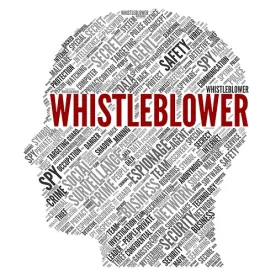Congress, not the Securities and Exchange Commission, established the whistleblower program six years ago as part of the Dodd-Frank Wall Street Reform and Consumer Protection Act. As the program has awarded over $100 million to date, it merits a critical analysis and review. Accordingly, I propose the following five propositions for consideration and debate:
-
The whistleblower program victimizes the victims of securities fraud. The Investor Protection Fund provides funding for the SEC’s whistleblower award program, including the payment of awards. In establishing the Fund, Congress directed that it be financed through portions of the monetary sanctions collected by the SEC in judicial or administrative actions brought by the SEC under the securities laws that are not added to the disgorgement fund or other fund under section 308 of the Sarbanes-Oxley Act or otherwise distributed to victims of a violation of the securities laws. To the extent companies pay these monetary sanctions, the investors in those companies are footing the bill for whistleblower payments. If securities fraud has occurred, it is those investors who will have been harmed. Thus, the SEC’s assertion that “no money has been taken or withheld from harmed investors to pay whistleblower awards” is simply false.
-
The whistleblower program creates moral hazard for the SEC. In a series of press releases and on its website, the SEC publicly promotes the success of the whistleblower program in terms of the amounts paid out. In effect, the SEC is asking the public and Congress to evaluate the program in terms of payouts. Because whistleblowers receive payment only when monetary sanctions exceed $1 million, the SEC has an incentive to seek large sanctions to enhance the perceived success of its program.
-
It is questionable public policy to award $83 million on just four people. According to the SEC, 77.6% of the $107 million awarded to date has been paid to just four individuals. The SEC paid the largest single award, $30 million, to someone living outside the United States. At the same time, the SEC reports that it has received more than 14,000 whistleblower tips. The lopsided ratio of tippees to payees gives the program a lottery-like aspect in which many participate but few actually win. Overall enforcement efforts could be impeded as the SEC deals with a flood of low-quality tips.
-
The SEC’s program lacks transparency. Section 21F(h)(2) of the Securities Exchange Act requires, with certain exceptions, that the SEC not disclose information that could reasonably be expected to reveal the identity of the whistleblower. The SEC therefore heavily redacts its orders determining awards, making it virtually impossible for the public to evaluate the SEC’s decisions. In September, for example, the SEC issued this order in connection with a more than $4 million award. The order itself is just over a page in length and tells a reader almost nothing. The order doesn’t provide the public with the name of the violator, the type of violations, and the SEC’s application of the facts and circumstances in determining the amount of the award. Remarkably, the SEC has redacted both the percentage of the monetary sanctions awarded and the exact dollar amount of those sanctions.
-
The cost to civil society outweighs the benefits of enforcement. The complexity and ambiguity of the federal securities laws makes it well nigh impossible for any issuer to be in full and unquestionable compliance. The whistleblower program with its lure of extravagant rewards, threatens civil society by fomenting suspicion, mistrust and a perpetual bellum omnium contra omnes (war of all against all). The enforcement benefits of the program are not worth the price of creating a business culture of denunciation.
499 Jahre Reformation

On this date in 1517, Professor Martin Luther posted a letter to Archbishop Albert of Mainz enclosing 95 short theses written in Latin. Reportedly, Dr. Luther also tacked them to the door of the Schlosskirche (Castle Church) in Wittenberg, Germany (pictured above). The rest, as they say, is history.



 />i
/>i

